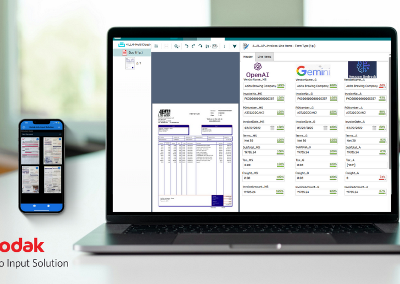PE & VC in Nigeria: A new world of startup funding

- Private equity (PE) and venture capital (VC) have become major funding models for startups in Nigeria with over $1 billion in startup funding annually.
- Moniepoint’s $110 million and Moove Africa’s $100 million funding rounds were recent significant startup funding.
- Between 2020 and 2024, Nigeria secured 404 private capital transactions totaling US$3 billion, representing 66% of West Africa’s deal volume and 52% of its deal value.
- The technology sector has been the biggest beneficiary of venture capital funding in Nigeria: 82% of venture capital activity.
- Global shift in investment patterns in the last decade has contributed to the surge in private equity and venture capital in Nigeria.
- In Nigeria, the startup structural architecture plays a crucial role in attracting private equity and venture capital investments.
- Private equity and venture capital in Nigeria still face some challenges such as foreign exchange volatility, regulatory uncertainty, and several structural and economic constraints.
- The future outlook for private equity and venture capital in Nigeria points to sustained transformative growth.
Nigeria Leads Africa in Private Equity and Venture Capital Growth
Nigeria has solidified its position as Africa’s top destination for venture capital and private equity investments, according to a new report released by the Rome Business School Nigeria. The report, titled “Private Equity and Venture Capital in Nigeria”, highlights how these financing models are transforming the country’s startup ecosystem by filling critical funding gaps, driving innovation, and fueling economic competitiveness.
RELATED: African startups surpass $1 billion in 2025 funding, signalling renewed investor confidence
In 2024 alone, Nigeria attracted $1.18 billion in venture capital, leading the continent’s total of $3.6 billion (Disrupt Africa, 2025; African Private Capital Association, 2025). Landmark deals such as Moniepoint’s $110 million and Moove Africa’s $100 million funding rounds exemplify this momentum.
Private equity investments surged by 322% in Q1 2024, reflecting renewed investor confidence (PwC, 2024; Serrari Group, 2024). Between 2020 and 2024, Nigeria recorded 404 private capital transactions worth $3 billion, accounting for 66% of West Africa’s deal volume and 52% of its total value.
Technology Dominates Nigeria’s Investment Landscape
The technology sector continues to command the lion’s share of venture capital activity in Nigeria. Between 2020 and 2024, 82% of VC investments—worth $2.7 billion—flowed into the tech ecosystem, particularly fintech, which alone represented 60% of all deals.
The report identified key beneficiaries such as Flutterwave, Paystack, OPay, Moniepoint, PiggyVest, and Kuda, whose success stories underscore growing investor confidence in Nigeria’s digital economy.
“Investors value companies with clear governance systems, scalable business models, and visionary leadership. Startups that demonstrate transparency and operational efficiency are more likely to attract and retain long-term capital,” the report noted.
Institutional Investors and Pension Funds Drive Growth
Nigeria’s growing appeal to institutional investors was further highlighted by ₦22 trillion (about $13 billion) invested by pension funds into private equity in 2024 (Aneasoronye, 2025). This reflects a strong shift toward domestic capital mobilization and sustainable funding mechanisms for high-growth sectors.
Regulatory and Economic Hurdles Remain
Despite the impressive growth trajectory, the report warns that regulatory inconsistencies, infrastructure gaps, and currency volatility continue to deter some foreign investors. Nigeria’s corporate tax rate of 30%, combined with a 7.5% VAT, increases operating costs and limits profitability.
Additionally, foreign direct investment inflows dropped by 26.7% in 2023, while venture capital deal value declined by 22% year-on-year due to macroeconomic instability and fluctuating exchange rates (Nigerian Economic Summit Group, 2023; African Private Capital Association, 2025).
Infrastructure Deficits Impact Business Competitiveness
The report underscores the urgent need for $3 trillion in infrastructure investment over the next three decades to tackle Nigeria’s power and transportation challenges (Government National Planning, 2024).
Nigeria currently generates only 4,500 megawatts of power—far below the estimated 30,000 MW needed—forcing businesses to rely on diesel generators, which consume nearly 40% of operating costs (NERC, 2023). Persistent insecurity and banditry further dampen investor sentiment.
Bright Prospects Amid Economic Diversification
Despite these challenges, the outlook for private equity and venture capital in Nigeria remains optimistic. The report credits the government’s economic diversification agenda, particularly investments in technology, agriculture, and manufacturing, for creating new growth avenues.
Key macroeconomic trends—such as a booming youth population, rising internet penetration, and expanding cashless payments—are driving investor optimism.
- Over ₦387 trillion was processed through electronic payments in 2022.
- Internet penetration reached 45% by mid-2023.
- Active mobile lines surpassed 190 million, and 60% of Nigerians are under 25 years old (CBN, 2023; KPMG, 2023; European Commission, 2024).
“Technology is the most transformative force shaping the future of PE and VC in Nigeria. As the country embraces digital innovation and sustainable development, the demand for venture and private equity capital will continue to rise,” the report asserts.
Sectoral Opportunities: Beyond Fintech
While fintech remains dominant, other sectors are gaining traction:
- Healthtech startups raised over $200 million in 2022.
- Green energy projects attracted $500 million.
- Agritech firms secured $53.2 billion in 2021, with ThriveAgric targeting $500 million in loans to 10 million smallholder farmers by 2027.
- Edtech and renewable energy startups are also seeing increased investor interest.
These developments reflect a broader shift toward impact investing and ESG-driven capital allocation, positioning Nigeria as a hub for sustainable investment.
Private Equity’s Role in Corporate Renewal and Job Creation
The Rome Business School report also highlights how PE-backed firms outperform non-PE-backed peers, citing improved corporate governance, financial restructuring, and market competitiveness.
Private equity has revived several struggling Nigerian companies through strategic capital injection and operational optimization.
According to PwC (2022), every $1 million invested in PE or VC-backed companies creates about 40 jobs, while McKinsey (2022) notes that VC-backed firms grow employment by 18% annually.
“By offering both capital and strategic guidance, PE and VC firms have helped startups scale, innovate, and compete globally,” the report concludes.
Nigeria’s Investment Future Looks Promising
As Nigeria deepens economic reforms and fosters regulatory stability, private equity and venture capital are poised to play a defining role in shaping the nation’s next growth phase. With its expanding tech ecosystem, youthful population, and accelerating digital adoption, Nigeria stands as Africa’s frontier for private capital investment and innovation-led development.






























